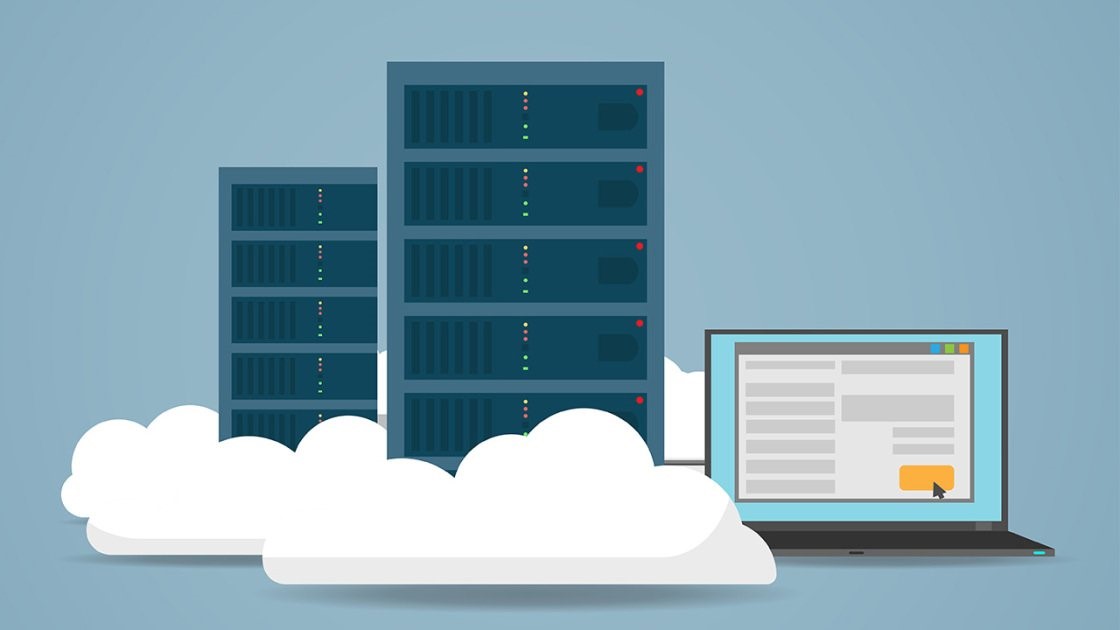You must have come across various types of hosting services provided by different web hosting company.
Not sure which host would be best for your website?
Keep reading to find out more about all the different types of web hosting and how you should choose a plan for yourself.
What are the Different Types of Web Hosting?
Every website is unique, some a heavy, others get a huge amount of traffic, and so on. Hence, to fulfill the needs of these sites, web hosting companies have divided their services into various types and plans suitable for their customers.
On a single server, several websites may be hosted, while some websites may be provided with a dedicated server of their own.
The four types of web hosting are:
- VPS Hosting
- Shared Hosting
- Dedicated Hosting
- Cloud Hosting
There are additional types of hosting within these categories, such as reseller hosting and WordPress hosting. We'll go through all six forms of web hosting that a Web Hosting Company offers as we go on.
What Hosting Option is Best for Your Website?
Your website's performance, security, scalability, and management level are all influenced by the sort of server you use.
The type of website you have and the traffic it receives will also influence your selection. A tiny personal blog with 5,000 monthly visitors, for example, will require different hosting than a significant e-commerce site with 250,000 monthly visitors.
It's also worth mentioning that several business hosting packages from a web hosting company are available at various pricing ranges. As a result, you must choose a solution that fits both your needs and your budget.
The six distinct web hosting choices are listed and discussed below. You may use this data to determine which hosting option is ideal for your website.
1. VPS Hosting
The word VPS stands for "virtual private server." This form of web hosting is a step up from shared web hosting. When a website's shared plan becomes insufficient, it's typical for the owner to switch to a VPS.
Your website will still be sharing a single server with other websites if you use a virtual private server. However, the amount of websites with whom you'll share it will be greatly reduced.
The term comes from the primary server being split into numerous virtual servers. Individual websites can personalize these virtual servers.
Optional root access is available with your VPS hosting package for individuals who want to run custom configurations on your server.
Because you have greater resources from a web hosting company, your website will operate better.
This implies faster loading times and improved uptime rates for you. You won't have to be concerned about another website crashing yours.
Most websites do not require a dedicated server (more on that later).
A VPS, on the other hand, offers some of the advantages of dedicated hosting at a fraction of the cost.
It's like renting an apartment on your own when you use a virtual private server. There won't be roommates in the kitchen, bathroom, living room, or other common areas. This allows you more freedom and flexibility regarding how you use the site.
Who Should Use VPS Hosting?
Small and medium-sized businesses can't afford downtime on their website. Therefore, VPS hosting is ideal. It's an excellent choice for website owners who have exceeded their shared hosting plan's resources.
Website owners that are tech-savvy and wish to customize their server settings might profit from a virtual private server.
A VPS should be considered for websites that include enormous files, such as movies and photographs.
A VPS will outperform a shared server for interactive websites with complicated files.
Pros:
- Dedicated server resources are available.
- Customizable server setups are possible.
- Faster loading times and higher uptime rates.
- Investing in a shared server is less expensive than investing in a dedicated server.
Cons:
- Other websites use the same core server as you.
- It's not as simple to set up a dedicated server as it is to set up a shared one.
- In terms of what you can control, there are still limits.
2. Shared Hosting
The most basic form of web hosting is Shared hosting. It is the most cost-effective option for tiny or entry-level websites.
As the name indicates, websites that use shared hosting will share resources with other websites on the same server.
This works well since most websites do not require their server.
That is how shared hosting by a web hosting company can remain so low-cost. The site host saves money by dividing resources.
As a result, each website on the server will be allocated a set of resources based on its hosting package.
While shared hosting is a terrific way to save money, it will not provide you or your website visitors with the best web hosting experience.
Who Should Use Shared Hosting?
For beginners and smaller websites, shared hosting is an excellent option for any web hosting company. It's affordable and doesn't need a lot of technological know-how to get started.
I'd recommend shared web hosting for simple websites–all it's you need–or anyone on a low budget. Bloggers and small company owners are ideal shared hosting candidates.
This hosting option is suitable for any website or web hosting company that does not demand a lot of on-site contact or a lot of resources.
A shared web hosting service will save you money if you don't expect more than 10,000 or 20,000 monthly visitors to your website.
Pros:
- Web hosting is the most cost-effective.
- Setup is a breeze.
- There is no need to be technically savvy.
- For novices and tiny websites, this is an excellent choice.
Cons:
- Other websites' server resources are shared.
- You do not influence performance concerns.
- Lower uptime rates and slower loading times.
- This isn't scalable.
3. Dedicated Hosting
In terms of web hosting, dedicated servers are usually the best option. This is because you have your dedicated server. Dedicated hosting often offers more significant advantages, such as higher uptime and quicker speeds.
But there's a catch: this is the costliest web hosting available.
Your website will function at its best because you will not be sharing resources or anything else with other websites.
The server settings are entirely within the control of websites housed on a dedicated server. You get to pick the software, locations, and everything you require.
If you get a dedicated server, you can anticipate a lot of uptime and lightning-fast loading times. You won't have to worry about other websites' traffic interfering with your performance.
Owning a dedicated server is similar to owning a home.
Everything is up to you, whether you want to build a fence, plant a tree in the yard, build a patio, or rebuild the kitchen.
Who Should Use Dedicated Hosting?
Dedicated hosting options by a web hosting company are usually designated for high-traffic websites. That translates to more than 100,000 monthly visits and enough income to pay for the server.
If you're still trying to get a few thousand visitors every month, this form of hosting isn't for you.
Large e-commerce sites and businesses should pick a dedicated hosting package since it gives them total control over their server's activities.
A dedicated server is ideal for websites that require the greatest levels of protection, such as those that contain financial or medical data.
Pros:
- The server is under your complete control.
- No other websites are allowed to use the same resources as you.
- Extremely safe.
- Fast load times, high uptimes, and top performance are all critical factors.
Cons:
- Web hosting at the costliest level.
- Technical expertise is required.
- Everything falls on your shoulders.
4. Cloud Hosting
Hosting your website on a cloud server is like using a hybrid version of a VPS.
Your site will stay fluid, perform at peak levels and deliver great performance when you need it most. If traffic to your website is unpredictable and fluctuates, this hosting model provides the best option for maintaining peak performance.
The best feature of cloud web hosting is the ability to scale easily.
It's not always easy to choose between pricing and server resources when it comes to hosting. A good example of this would be when budgeting for your website's hosting plan.
You might not need a huge amount of resources, but you don't want to allocate less than the amount required and have poor performance as a result.
Pros:
- High-level security.
- Resources can be scaled based on demand.
- There will be less unplanned downtime.
Cons:
- Prices aren't always set in stone.
- Unpredictable traffic might cause costs to rise.
- Customization options are limited.
5. Reseller Hosting
Selling hosting services to clients is what Reseller hosting is all about. You purchase hosting from a company and then resell it to your customers. You have the ability to create significant profit margins because you'll be paying wholesale prices to the provider.
Reseller hosting is typically used by agencies, web designers, and developers. You'll want to seek elsewhere if you're starting from scratch or merely want to host your own website.
Reseller hosting isn't something we recommend unless you want to handle at least ten distinct websites.
Otherwise, it's unlikely that you'll find it worthwhile.
Pros:
- Set unrestricted rates for your customers.
- Obtain a recurrent and long-term source of income.
- Enhance your current services.
Cons:
- To make it worthwhile, you'll need a large number of clients.
- Your clients will turn to you if something goes wrong.
6. WordPress Hosting
WordPress hosting optimizes your content management system for WordPress.
Providers typically provide two kinds of WordPress hosting.
- Managed WordPress Hosting
- Shared WordPress Hosting
WordPress shared hosting is similar to ordinary shared hosting, with the exception that WordPress may be pre-installed. Enhanced security, server caching, staging, and quicker loading times are all available with managed WordPress hosting.
One-click WordPress installations are also included in the finest WordPress hosting plans.
WordPress hosting typically includes additional protection that is tailored to WordPress-powered websites.
Because WordPress is the most widely used content management system (CMS) on the internet, those websites are more vulnerable to cybercrime. As a result, the extra security is unquestionably beneficial.
This isn't a difficult problem to solve.
WordPress hosting is only available to WordPress users. Look into this form of web hosting if you want your hosting to be optimized for your WordPress site.
Pros:
- It's WordPress-friendly.
- WordPress is pre-installed or can be installed with a single click.
- WordPress sites are now more secure.
Cons:
- Less flexibility and control.
- It's not always easy to keep up with the latest updates.
- Other WordPress sites' resources are shared.

What Is the Best Type of Hosting for Your Site?
Everyone's solution will be different. It all depends on the sort of website you have, the resources you require, your budget, and the amount of traffic you receive. This all comes after you purchase a domain name and don’t forget to buy an SSL Certificate with your web hosting plan.
You can also get a free domain name from certain web hosting companies with the purchase of a web hosting plan.
This list includes my top recommendations for each area, so that's the ideal place to start your search.
You can restrict your alternatives once you know what you require.






